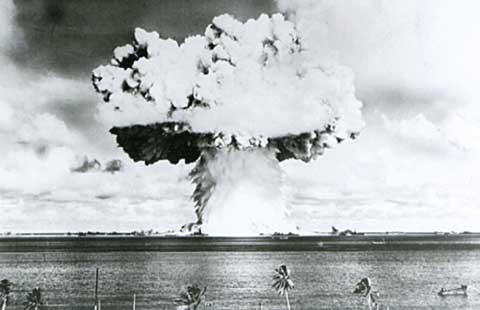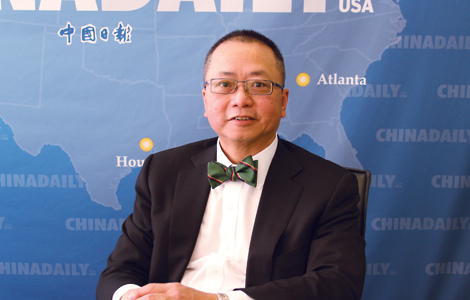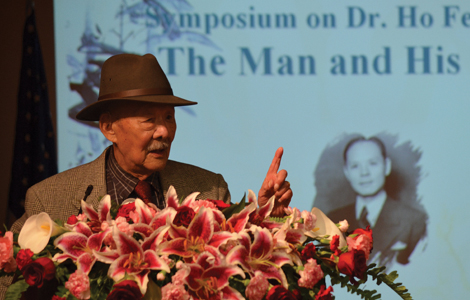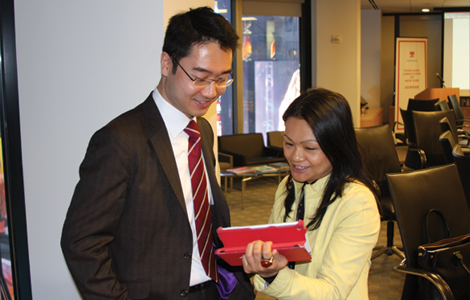Companies seek help with brand enforcement
Updated: 2014-04-28 07:16
By Cao Yin in Shenzhen, Guangdong (China Daily)
|
||||||||
Some Chinese enterprises are finding it hard to provide evidence in intellectual property lawsuits and are calling on notary offices for more support in disputes.
Of particular concern is the gathering of evidence from online sources.
Zhou Yachao, from Guangdong Monalisa New Construction Material Group, said there have been about 7,000 stores selling the group's products without permits, and even supplying fake brand-name items through online shopping portal taobao.com, over the few past years.
"But it has been difficult for us to find them, let alone approach them," said Zhou, whose business mainly designs and produces china.
Zhou, with two other colleagues, works for the company's legal department.
"When I found an online store selling fake products using our brand name, I complained to network operators and the shop owner, but they always ignored me," he said.
"Sometimes online shops infringe on our company's intellectual property rights late at night, but the evidence I collect can be hard to get approved by notary offices that are not working at that time," he said.
The online vendors suspected of infringements might also disappear the next day, he said.
Liao Miaofen, manager of the legal department at Haday, or Hai Tian, a large manufacturer of flavoring in China, echoed Zhou, saying that her enterprise also encounters such problems during intellectual property disputes.
"Aside from getting the evidence, it's also difficult to evaluate our losses," she said, adding that this can be a major reason why the compensation in a lawsuit can be lower than expected.
"Our enterprise's reputation suffers the most as someone imitates our commodities. The intangible damage can be difficult to evaluate," she said.
"Sometimes weaker evidence might lead to lower compensation. So the better approach is to ask people suspected of infringements to prove that their products are authorized by our enterprise, rather than having us supply evidence to show that the goods are fake," she said. Current law places the burden of proof on the legitimate business.
Liu Jianhong, director of the intellectual property department at Foshan Intermediate People's Court in Guangdong province, said that the compensation in recent years has been growing, and the courts are also helping enterprises recover their losses.
Liu confirmed that the notary offices are sometimes guilty of dereliction of duty, adding that many lawyers who provide legal aid for enterprises can fall short when it comes to collecting evidence.
"Some notary offices across the country have little awareness of the field of intellectual property rights, and they seldom make the effort to study," she said. That can pose barriers to building a better intellectual property protection environment.
At the same time, most small enterprises refuse to provide their financial statements and audit accounts to prove their losses to the courts, she said, "because the materials of some small companies are in a mess or are problematic".
The enterprises should also clarify and improve their financial work, "which can really help them during a trial", she said.
Xu Xuan, vice-president of the law school at Jinan University, suggested that enterprises assign personnel specifically to handle intellectual property work.
Zeng Baochun, a lawyer in Guangzhou, said that some foreign companies, such as the global luxury brand Louis Vuitton, require officers to scan the Internet every day to find out who is infringing on trademarks and other intellectual property.
"Chinese companies care more about compensation, while a global enterprise might think more about stopping the infringement," she said.
Contact the writer at caoyin@chinadaily.com.cn

 Young laborers shun tea harvesting
Young laborers shun tea harvesting
 Old US nuclear explosion images released
Old US nuclear explosion images released
 Ballerina-to-be in audition
Ballerina-to-be in audition
 Red alert for rainstorm issued in S China's Liuzhou
Red alert for rainstorm issued in S China's Liuzhou
 Forest team tackles fire drill in NE China
Forest team tackles fire drill in NE China
 'Global citizen' becomes head of C-100
'Global citizen' becomes head of C-100
 At 96, a legendary chef can still inspire 'the best' Chinese food
At 96, a legendary chef can still inspire 'the best' Chinese food
 China's wine consumption is growing
China's wine consumption is growing
Most Viewed
Editor's Picks

|

|

|

|

|

|
Today's Top News
Dominic Ng completes term as C-100 chairman
Easier visas aim to attract more Chinese
"The Other Woman" beats "Captain America" with $24.7m
NBA probing alleged recording of Clippers owner
S Korean PM resigns over disaster
China Customs seize fake products to protect World Cup
Officials praise ASEAN-China ties
US, EU seen imposing sanctions on Russia
US Weekly

|

|







